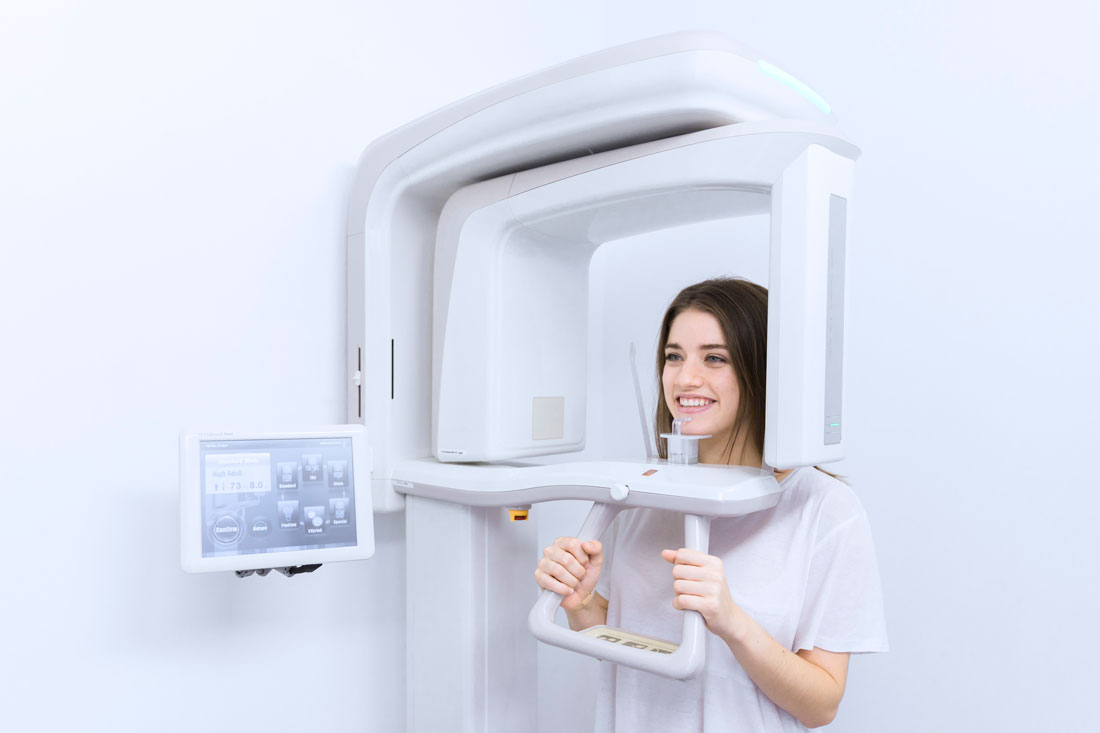At Baker Street Dental, we are delighted to offer you a dental cone-beam CT (computed tomography) scan for greater accuracy of the diagnosis and treatment you’re having.
The dental CT scan creates a 3D image of your mouth, combining your teeth, soft tissues, nerve pathways, and bone structure and shape. The image is created by combining dental X-rays and computer-processed X-ray information. Your dentist may use this information in case of impacted teeth, for implants, orthodontic treatment, diagnosis of TMJ (temporomandibular joint disorder ), or other circumstances.

Book an appointment
Cone beam CT scan for dental implants
For the successful diagnosis, planning, implantation, and post-procedure treatment, the cone beam CT scan provides your implantologist with invaluable information about the exact shape and structure of your bone.
This pain-free, quick procedure can make your treatment significantly more comfortable and your entire experience smoother.
Cone beam CT scan for orthodontics
When planning the movement of your teeth, it is of great value for your orthodontist to visualise the jaw bone support and nerve pathways. This additional information can prevent affecting the nerves during treatment.
* Affecting the nerves in the jaw can cause ringing in the years, posture issues, and other inconveniences.
[ To learn more about the brace options we offer, please click here. ]

Cone beam CT scan for impacted teeth
The visualisation of all factors (bone structure and shape, soft tissues, and teeth) provides an unprecedented accuracy for the correct diagnosis of impacted teeth. The scan will make it easier for your dentist to plan and execute the most suitable and painless treatment for your particular case with minimal post-procedure impact.
CT scan for diagnosis of temporomandibular joint disorder
The temporomandibular joint connects the lower jaw to the skull. Issues in this area can lead to many problems, including headaches, ringing in the ears, facial and neck pain, ear pain, biting difficulties, locked jaw, and others.
The cone-beam CT scan will provide your clinician with detailed visual information of the exact temporomandibular joint issue and help determine the proper treatment for you.

